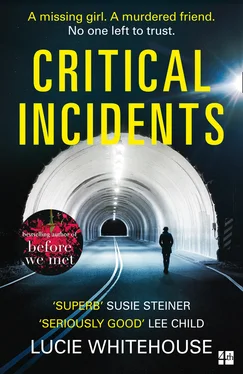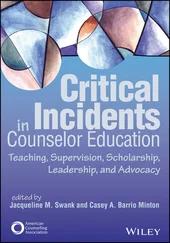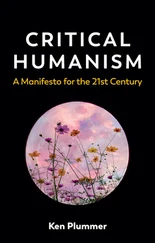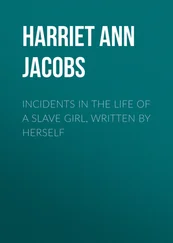The déjà vu had started the moment she’d opened her eyes and seen Lennie’s new school uniform looming on its hanger like the Ghost of Christmas Past. She’d been at Camp Hill, the grammar school herself, but for a couple of months when she was sixteen, after they were introduced by a mutual friend, she’d gone out with the baddest of St Saviour’s bad boys, Sean Harvey. When he asked her, she’d said yes because she knew it would piss Christine off and because, let’s face it, he was fit and she was shallow, but she’d grown quite fond of his rebel heart and precocious sexual talent. He’d dumped her after she got her GCSE results – apparently her A-stars had been an embarrassment to him. Given her current luck, she thought, she’d probably find herself sitting in a cul-de-sac outside his house before too long.
Catching scroungers on the sick in Sparkhill. How the mighty have fallen .
‘The site’ just now had been a semi-detached in Bournville where the Christmas Ham, real name Barry Perkins, was working cash-in-hand on a kitchen extension and where they’d filmed him tossing the sacks of cement out of his van like confetti. The client was Hargreaves & Partners, a local law firm acting for Perkins’ legitimate boss. She had quite a bit with them at the moment, Maggie said, and another bigger firm, too, on top of her long-standing contract with the city for suspect disability and unemployment claims. With Luke’s comments ringing in her ears, Robin had listened to the list and felt her soul wither.
‘Foive pound seventy-foive, bab,’ said the woman behind the counter.
Back in the car, Maggie ate a sausage roll in four bites then pulled off again.
Robin buckled her seatbelt. ‘Where to now?’
Sparkhill, just north of her parents’ in Hall Green, was almost entirely Asian, which was why Luke, the bigot, had reflexively chosen it for his scroungers. The shops and restaurants on Stratford Road were a mix of Balti houses and halal butchers, travel agencies and bakeries, the windows of the clothing stores full of salwar kameez and Pakistani suits in jewel-box colours. Maggie turned off by a Sikh temple Robin didn’t remember having seen before. Three storeys high with reflective windows trimmed with blue, it looked more like a call centre than a place of worship. Its red brick was the only thing it had in common with the rest of the street, a shabby collection of Victorian terraced workers’ cottages.
Stratford Road had been buzzing but just a few hundred yards off the main drag, the pavement was deserted bar a single elderly woman wearing an anorak over her sari. The houses had a dormant air, the only indication that anyone in them was awake – or even alive – the flicker of television through a ground-floor window.
Maggie brushed pastry flakes off her trousers. ‘Right. Time to come clean.’
‘About what?’
She laughed. ‘Your face! Relax, will you, I mean me, not you. There’s something I haven’t told you about the job.’
‘What?’
‘Obviously I trust you, it wasn’t that, but I’ve always worked strictly need-to-know on this side of things and because this is probably short-term, you and me, I didn’t know if it’d come up. Also, the fraud’s eighty-five, ninety per cent of my work, so you had to be all right with that. I mean, obviously you’re not going to be thrilled, are you, going from Homicide Command to hanging round Wickes’ car park waiting for scumbags. They’re hardly criminal masterminds, Barry Perkins and his ilk.’
‘Maggie. You know I’d be buggered without this. Without you having offered me a job.’ It wasn’t just the money, she thought; if she’d had to spend another day without doing something, belonging to the world of people who had somewhere to be, work to do, she might actually have gone insane.
‘Oh, stop, I don’t need gratitude.’ Maggie pointed at the bag at Robin’s feet. ‘Pass me those, will you?’ She took the pack of iced buns and pulled one out. The floor heaters had loosened the slab of icing, which slipped sideways across the top like an ill-fitting toupee. Her mouth encompassed the thing without it even touching her lipstick.
‘Anyway, I’ve got a bit of a bone to throw you. It’s hardly Interpol but I do some work for women in tight spots,’ she said. ‘Sometimes just helping them sort a problem, sometimes it’s more serious. You can start off expecting one thing and it’s actually something totally different.’ She took another bite. ‘Like, last year, I had a bigamist. His second wife came to me, she had no idea, just knew something wasn’t right. I poked around a bit and that was it. I found him in the Peak District eventually with a whole other family: three kids, cocker spaniel, the lot.’
‘So it’s personal fraud work?’
Maggie shook her head. ‘Not really. Sometimes. It’s all sorts. I’ve had girls about to be sent overseas for marriages arranged by “uncles” who’d basically sold them as British passports – those both came word-of-mouth. One of them lived just round the corner from here, other side of Stratford Road. Her mother was the client – wanted more for her. I got her away, helped set her up elsewhere. Nice girl. She’s in Leeds now, doing a degree – we’re still in touch. I had a girl who was trying to get out of a cult. I’ve also had parents who just wanted to know about their daughter’s dodgy boyfriend. Research.’
‘How long have you been doing it?’
‘As long as I’ve had the business. Since I left the job.’
‘They know?’
‘Of course. And that’s how I get most of the cases. I’ve got a contact – Alan Nuttall, my old DS, DI now – and he rings me if something comes up, a situation where there’s no actual crime, nothing the police can do, or it’s like the bigamist: something’s off and I help find out what. He was prosecuted afterwards, obviously, once it was clear there was a charge to be brought.’
‘You’re a dark horse, Maggie Hammond. I had no idea.’
‘Need-to-know, like I said. And now you do.’
A lot of the Victorian houses Robin knew were Tardis-like, with inner proportions that seemed impossible from the outside, but this one was every bit as small as it had looked from the pavement. Dark, too; there was no fanlight above the front door, and the internal door to the front room was shut, blocking any light that way. As they followed the woman to the kitchen at the back, the phrase ‘down the rabbit hole’ came into her head.
It wasn’t just the lack of light or space, though given her choice of small mammals, Robin thought, she’d say Valerie Woodson was more of a harvest mouse than a White Rabbit. Her shoulders hunched as she scurried ahead of them, and though her colouring was sandy – once-auburn hair fading to an odd peach-grey – her eyes were so dark, they looked like buttons, currants in a bun. Maybe they’d adapted to the conditions.
It was brighter in the kitchen, where she stood dazzled in front of them.
Maggie smiled gently. ‘How about a cuppa?’
The woman spooned Nescafé into mugs Robin recognized as garage giveaways from twenty years ago while Maggie kept up a soft patter about the rain, the lead story in the Post on the table, a pot of snowdrops outside the back door. The kitchen was old but looked-after, the white Formica almost stain-free even as the red plastic handles dated it at warp speed. The fridge was covered with magnets shaped like pizza slices and strawberries, a London bus.
An ‘I heart Devon’ magnet anchored a photograph of Valerie and a girl of fifteen or sixteen. They squinted into the sun, arms around each other, their lop-sided smiles so similar they could only be mother and daughter despite the girl’s extra two or three inches and dark brown hair. She wore denim cut-offs and a turquoise vest top and, unlike her mother – the small visible area of whose shins was the colour of cream cheese – she was tanned. Behind them was a beach, unmistakeably British: windbreakers, buckets and spades, and one egregiously burned fat white back.
Читать дальше










